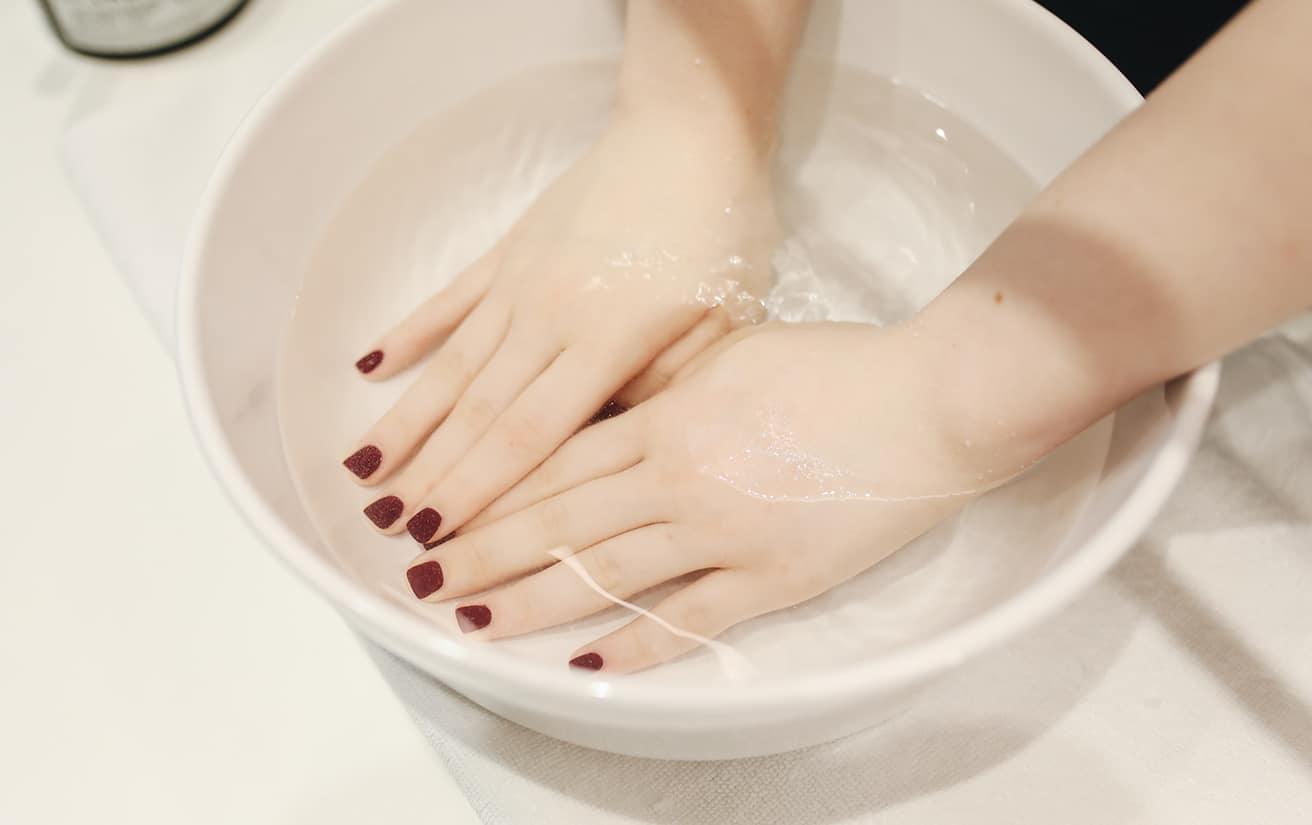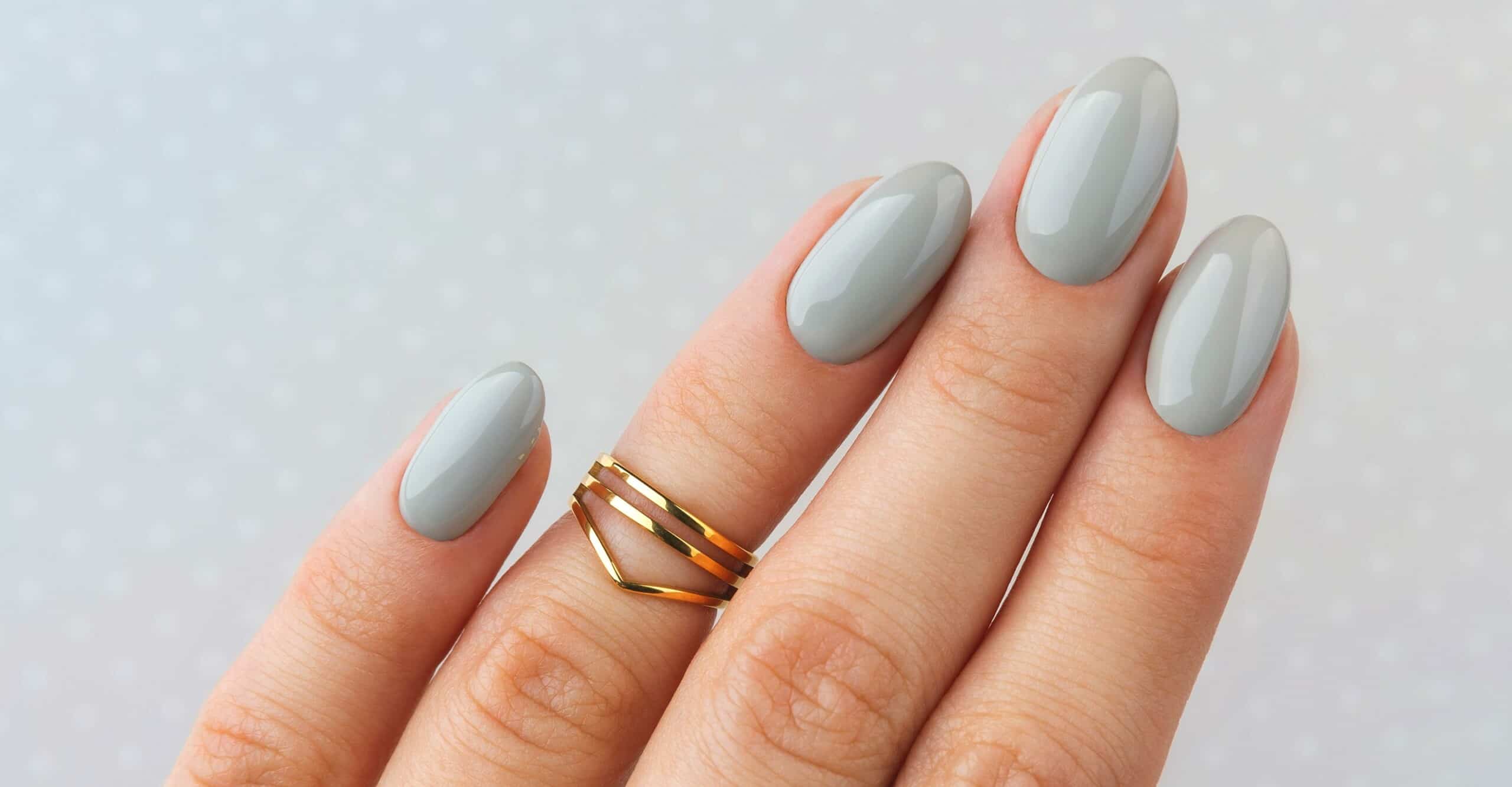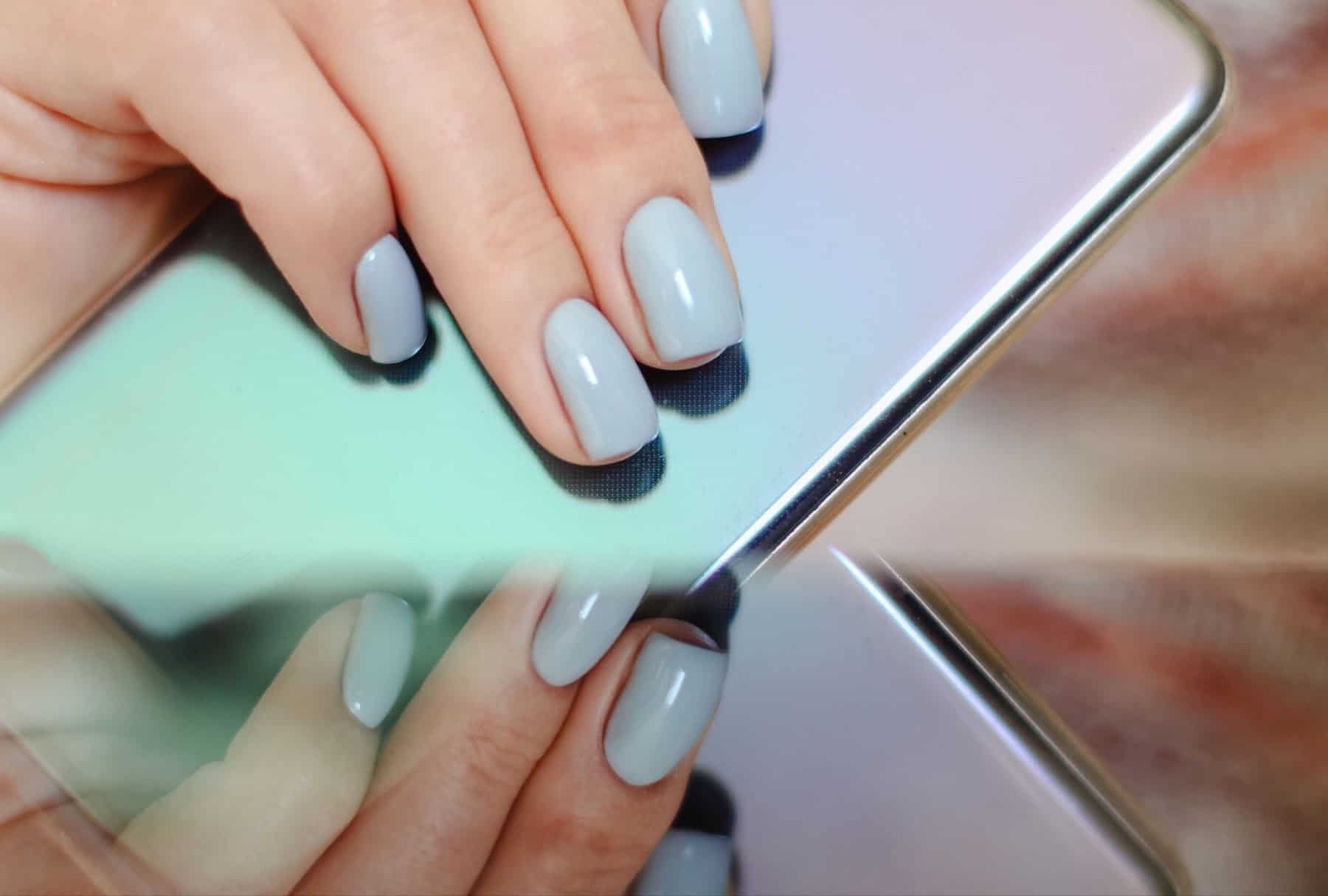Dip Powder vs Acrylic Nails: What’s the Difference?
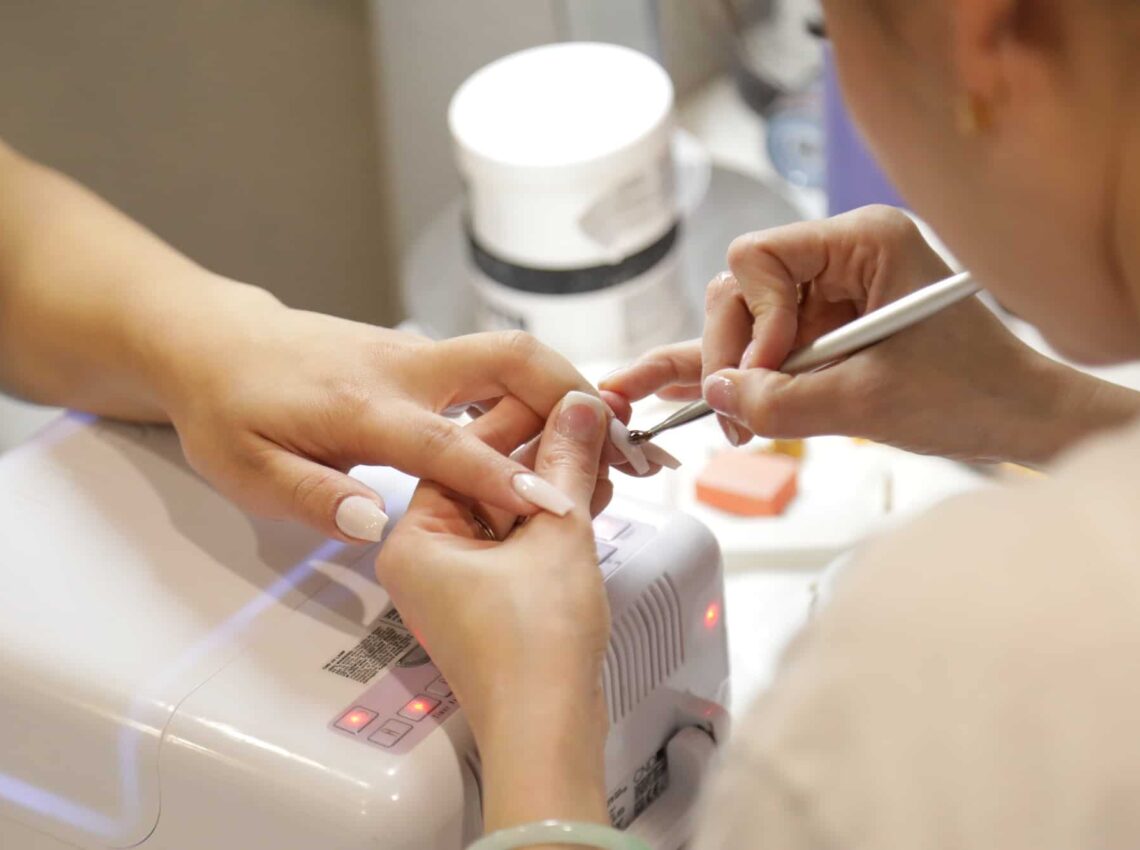
You know what they say: you’re never fully dressed without a good manicure. Okay, maybe they don’t say that, but you know an outfit isn’t complete without that extra touch of glamour. In fact, you might be looking at your nails right now and thinking about your next set. Chances are, whatever kind of manicure you get, you’ll want it to last for all your upcoming looks.
When it comes to achieving a long-lasting manicure, acrylic and dip powder nails are two of your best bets.
Both types of manicures will result in beautiful, durable nails, but there are some pros and cons to each method. To help you decide between dip vs acrylic, our beauty professionals at StyleSeat have broken it down for you, step by step (or rather, nail by nail).
The Application Process
While both dip powder and acrylic nails result in a manicure more durable than a manicure with traditional polish, one key difference between dip and acrylic is the way they’re applied to your nails.
Acrylic Application
Acrylic nails are made by combining powder and liquid into a dough-like material, which the nail tech paints onto the nail and molds into the desired shape. Then, the nails are painted and air-dried.
If you’re going for a look longer than your natural nails, the nail tech might use tips or a nail form to lengthen the nails. The process works like this:
- Nail tips are glued on top of the nail and become part of the manicure.
- Nail forms slide under the nail and are used to help shape the acrylics, but are then removed once the nails are hardened.
There’s no right or wrong method. Some people think nail tips are stronger than forms, while others think that nail forms are better because they don’t put any pressure on the nail plate.
Dip Powder Application
Dip powder nails are applied a bit differently. You may have even seen some ASMR-y videos of the application process while scrolling through Instagram.
First, the nails get a liquid base coat, then are brushed with colored powder, then coated again with a protective clear polish. The process usually has to be repeated at least twice to achieve the desired pigment.
You can get a longer look with dip powder manicures too, but only by using nail tips.
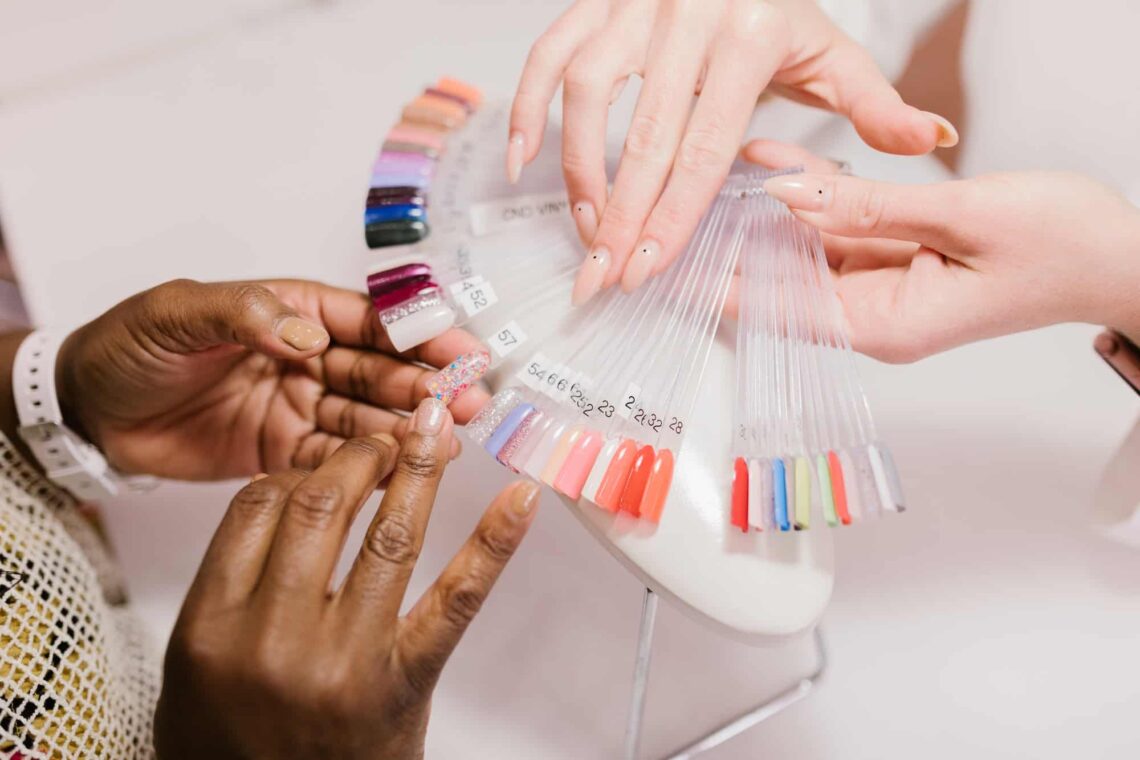
What About Applying Designs?
When you think of acrylics, you might think of the designs that often adorn them. If you’re into intricate nail designs, acrylics might be a better route for you. Some nail techs get super creative with their designs, so feel free to ask for your dream manicure.
Dip powder manicures can still include designs, but they’ll likely be less intricate. When scrolling through Pinterest searching for dip powder nail ideas, you will find that many designs include:
- French dip tips
- Color blocking
- Ombre designs
- Accent nails
- Sparkles or glitter
Which Lasts Longer?
Because you’re probably looking for your nails to last as long as possible, it’s important to know the lifespan of each manicure.
- Dip manicures usually last for at least three weeks, but can sometimes last up to four weeks.
- Acrylic nails can technically last six to eight weeks, but you’ll have to visit the nail salon every couple of weeks to fill in the growth.
These are just estimates of course — a manicure’s lifespan often depends on your daily activities. If you work with your hands a lot, chances are your nails may chip or scuff sooner than others. Your nail’s natural growth rate will also affect how long your nails last since growth will create an apparent gap between the cuticle and the polish.
Regardless, for either type of manicure, you can expect to make a trip to the salon around every three weeks to either fill in the growth or get a whole new set.
Tips to Make Your Manicure Last Longer
Though both dip and acrylic manicures last longer than regular nail polish, you can still take some extra steps to really make your beautiful nails last the extra mile. Some advice to make your nails last longer include:
- Wear gloves when doing things like washing dishes or working with your hands.
- Consider choosing a nail shape and length that will not break as easily. With so many different types of nail shapes and lengths to choose from, make sure to select one that complements your lifestyle.
- Don’t pick! It can be tempting, but picking at your manicure leads to lifting of the polish, which leads to peeling of the polish, which leads to, well, you get it.
- Keep your real nails (and hands) moisturized by applying cuticle oil whenever your cuticles look a little dry.
- Clean your acrylic nails regularly with a soft brush, and make sure to dry them when you’re done.
- Get your acrylic nails filled regularly and on time to avoid breakage.
- Choose quality nail polish brands for longer-lasting results.
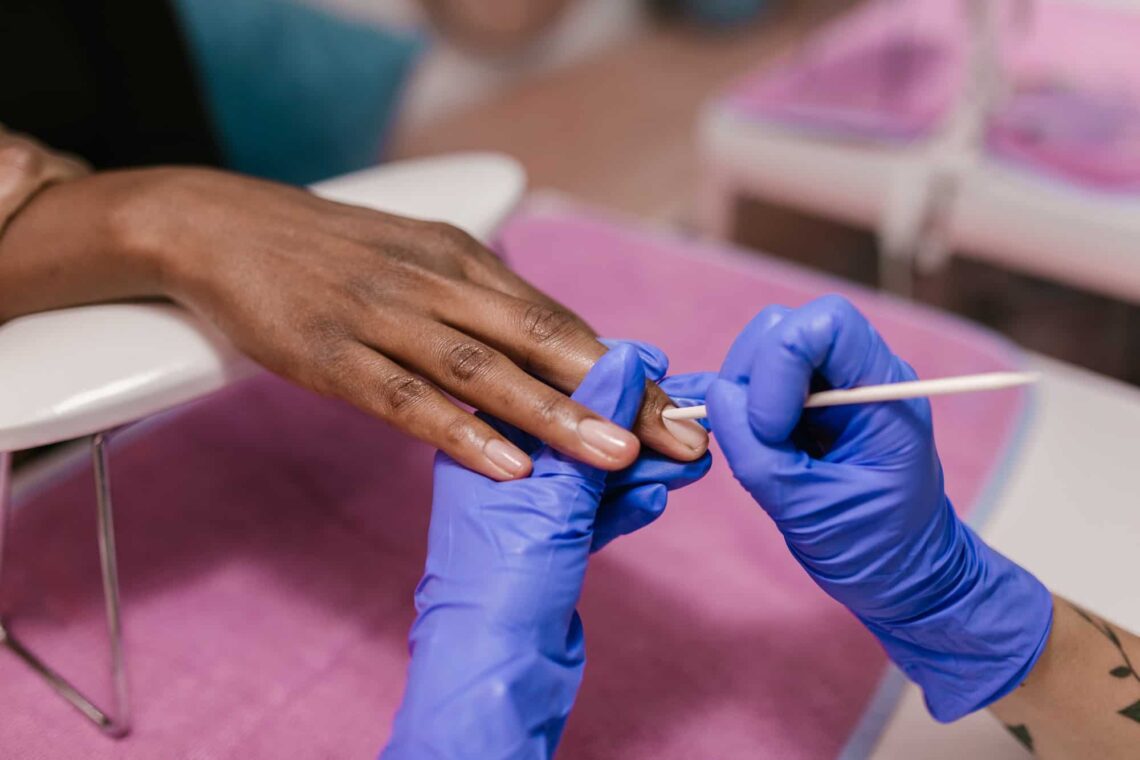
The Removal Process
We know it can be tempting to pick at your nails, but safe removal methods are important when it comes to keeping your nails healthy. And when deciding between dip nails vs acrylic, it’s helpful to understand the removal process.
Whether acrylic vs dip, it’s good practice to give your nails a break in between manicures so your nails remain healthy. Signs your nails might need a break include:
- Rough white patches on the nail surface
- Peeling
- Ridges
- Splitting
- Discoloration
- Dehydrated cuticles
You can do your best to avoid these problems by following the proper removal techniques below.
Removing Acrylics
To remove traditional acrylic nails, it’s best to leave it to the pros so you can avoid damaging your nail bed. Head to the salon where a nail tech will:
- Trim them down
- Buff the polish
- Soak your nails in 100 percent pure acetone
- Push the polish off with a metal cuticle pusher
This process will usually be repeated twice or more until all the polish is removed. After the removal process, a good nail tech will rub cuticle oil onto your nails, buff it into your nails with a soft buffer, and then finish with a final layer of cuticle oil.
Removing Dip Powder Nails
Like acrylics, removing dip powder nails is more complex than just removing regular nail polish. Again, to avoid damaging the nail bed, it’s best to let a specialized nail technician strip your nails of their manicure.
First, a nail tech might use an electric file to trim down the top layers of polish so that the acetone can better penetrate the polish. Then, just like acrylics, your nails will soak in acetone until the polish can be pushed or wiped off. It’s usually pretty easy once they’ve soaked, but if your manicure was on the thicker side, the process of soaking and wiping the powder off may need to be repeated.
Manicure Aftercare
You can always give your nails a breather between manicures. During that time, you might benefit from a strengthening treatment — and some salons might even offer a strengthening treatment after the removal process.
It can also be beneficial to take matters into your own hands (no pun intended), and commit to applying cuticle oil daily so your nails and cuticles can stay hydrated after all they’ve been through.
You can also eat biotin-rich foods to help your nails stay strong, like:
- Avocado
- Eggs
- Almonds
Bonus: biotin helps your hair grow faster too, so it’s a win-win!
Which is More Affordable?
It may surprise you to learn that pricing is actually pretty similar when it comes to dip powder vs acrylic nails.
- Acrylics will usually cost you around $35-$45 on average
- An average dip powder manicure will cost between $30-$50 on average
Granted, location will play a factor in costs, and any nail art designs may cost extra, too.

Staying Healthy and Maintaining Salon Cleanliness
You want your manicure to be strong, but your trust in your nail salon should be even stronger. Whether you are searching for the best nail salons in Richmond, VA or are on the lookout for qualified nail technicians in New York, NY, it’s a good idea to be aware of common malpractices that can easily be avoided by visiting a trusted, reputable salon.
It’s important to note that, even if the proper precautions are taken for both types of manicures, acrylic is generally known to be a bit harsher because there are more chemicals involved in the process. Also, acrylic manicures are often thicker than dip manicures, and without proper care, thick polish can sometimes result in fungal infection.
Beyond the basics of having clean tools and a clean workspace, here are some other safety concerns to keep in mind when getting a dip or acrylic manicure.
Dip Manicure Safety
Dip manicures are widely applauded for being safer than their sibling — gel manicures — because they don’t expose the wearer to the potentially harmful UV rays that hard gel manicures require. But there’s more to think about than just UV rays.
It’s called a dip manicure because traditionally, you’d dip your fingers into a jar of dip powder. However, this can quickly become unsanitary in a salon setting where multiple clients use the same colors.
You’ll want to make sure your nail tech isn’t dipping your nails into a communal pot of powder, as this can lead to cross-contamination. Alternatively, your nail tech should:
- Brush on the powder instead of dipping
- Pour some powder into a separate container (though this can be wasteful for the salon)
Acrylic Manicure Safety
Check in with your nail tech and ask what kind of bonding agent they’re using. If they’re using Methyl methacrylate monomer (MMA), run. MMA can lead to painful breakage and infection.
You should also know that, if breakage does occur, you’re more prone to infection because the gap between the nail and nail bed is the perfect place for bacteria to grow.
Which Type of Manicure Should You Get?
Still can’t decide between acrylic nails vs dipped nails? If you like longer nails with more intricate designs and don’t mind more frequent trips to the salon, traditional acrylic nails might be the manicure for you.
If your nails tend to be on the shorter side and designs aren’t your forté, then a dip powder manicure might satisfy you.
Both types of manicures are great options for someone looking for something that lasts longer than a traditional polish manicure. Plus, with both dip and acrylic manicures, you won’t miss out on trying new trending nail colors as many brands make polishes in various forms.
Get Your Best Set with StyleSeat
No matter what type of manicure you choose to get, you should always go to a trusted, trained nail technician that can not only guarantee stylish nails, but also your long-term nail health. That’s where StyleSeat can help.
Browse local salons and our community of Pros to ensure your next perfect manicure.
Sources:
Polish Perfect. Nail Tips vs. Nail Forms: Which is Better & Why https://www.polishperfect.co/pre-designed-nail-tips/
Allure. How to Tell If Your Nails Need a Break From Polish. https://www.allure.com/story/do-nails-need-to-breathe
Cosmopolitan. How to Remove Acrylic Nails Without Damaging Your Nails. https://www.cosmopolitan.com/style-beauty/beauty/a29668760/how-to-remove-acrylic-nails/
Glamour. Dip Powder Nails: All About the Manicure That Lasts Longer Than Gels. https://www.glamour.com/story/dip-powder-nails-are-they-safe
Byrdie. How to Remove Dip Powder Nails, According to Nail Technicians. https://www.byrdie.com/how-to-remove-dip-powder-nails-4690612
Woman’s World. Acrylic Nails: Everything You’ve Ever Wanted to Know. https://www.womansworld.com/gallery/beauty/acrylic-nails-163605#:~:text=for%20the%20fun.-,How%20much%20do%20acrylic%20nails%20cost%3F,increase%20to%20%2450%20or%20%2460.
Cosmopolitan. Dip Powder Nails: What to Know About the Long-Lasting Manicure Trend. https://www.cosmopolitan.com/style-beauty/beauty/a29711517/dip-powder-nails-what-to-know/#:~:text=How%20much%20do%20dip%20powder,%2450%20depending%20on%20your%20salon.

